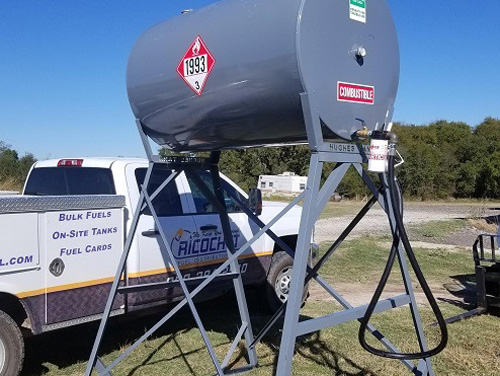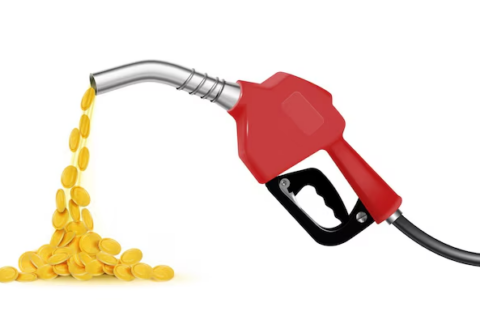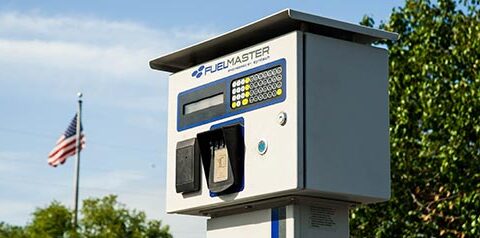Ricochet’s Guide to Bulk Fuel Storage: Costs and Safety Risks

If you operate a large business with a fleet of vehicles or heavy equipment, having bulk fuel storage tanks on-site can be a practical and cost-effective solution. Managing your own big fuel supply helps reduce downtime, increases productivity, and can offer savings over time. However, while the benefits are clear, it’s also important to understand the responsibilities and potential drawbacks that come with fuel storage. From the upfront investment to safety concerns and compliance requirements, there are key factors to consider.
Let’s dive into exploring the full picture—including the costs, liabilities, and what you need to know to make an informed decision.
What Expenses Come With a Fuel Tank?
You will incur the cost of either a tank rental or a purchase. With Ricochet Fuel, you can use the tank for free when you purchase a minimum monthly amount. You’ll also have the cost of your fuel but, you’d already have that, so it isn’t an added expense.
Fuel Theft Is a Big Deal
When you have fuel on your property, you’re at risk of it being stolen. There are several ways that fuel theft can happen. Here are the most common:
Less than honest employees with access can either use the gas or diesel in their vehicle or the cars and trucks of their friends and relatives. That mainly happens when they gas up off regular business hours. There are solutions to this, which include digital keypads with individual PINs for every employee and keeping a close eye on unusual fueling patterns.
Burglars can also steal your fuel. But, just like with dishonest employees, there are ways to prevent this. And you may already have some of these anti-theft systems established to protect your tools, equipment, and vehicles. Here are the top preventative measures we suggest taking:
- Lighting – lots of lights are a huge deterrent, and they aren’t even costly. Make sure your site or yard is well lit.
- Cameras – besides lights, having working video cameras not only protects your fuel, but it will also protect your inventory, vehicles, and equipment. Cameras deter both employees and criminals from stealing.
- Secure Keypad – modern fuel pumps have secure keypads with PINs connected to each employee and vehicle. That helps prevent a lot of theft.
- Visibility – make sure the tank is visible but not easily accessible. Put it in a well-lit location, out in the open. Make sure it’s not too close to the entrance or exits and in the camera view.
- Accessibility – having a fence around the perimeter is a great deterrent. Make sure you have an excellent heavy lock on the gate.
Securing your fuel does come with costs, but it deters theft, which can be even more expensive.
Accidents, Spills & Cleanup Costs
One of the first things to consider is the possibility of diesel spills. Here is what the EPA has to say about how much spills cost:
“The cost of cleanup depends on a variety of factors, including the extent of contamination and state cleanup standards. The average cleanup is estimated to cost $130,000. If only a small amount of soil needs to be removed or treated, cleanup costs may be as low as $10,000. However, costs to clean more extensive soil contamination may exceed $130,000. Corrective action for leaks that affect groundwater typically cost from $100,000 to over $1 million, depending on the extent of the contamination.”
Frequent questions about underground storage tanks. (2020, June 22). US EPA. https://www.epa.gov/ust/frequent-questions-about-underground-storage-tanks
As you can see, the fines and costs for a spill or accidents can be very high. But, if you know what you’re doing and have policies and best practices in place; in many cases, you can prevent accidents. If they do happen, handle them right away to reduce the financial damage.
Insurance Costs of Bulk Fuel Tanks
When you’re looking at the risks and fuel storage tank cost, it’s smart to talk to your insurance provider. Ask if your current policy covers onsite tanks. Also check:
Is a spill covered by the policy?
Will a spill or fuel-related issue cause your premium to go up?
Getting clear answers now can help you avoid bigger problems and unexpected costs down the line.
If you decide to go ahead and get a tank or tanks, there are two EPA forms your insurance company will need to fill out.
Administrative Costs of Onsite Tanks
When you have either above ground or in-ground fuel storage tanks, there are several additional costs to consider beyond just installation. Let’s look into the main ones in detail.
- Personnel – you’ll need someone to be responsible for ensuring staff is trained and regular maintenance occurs. That can be a trade-off because you will be saving time by your team not having to go to the gas station and fuel up.
- Maintenance – you’ll need regular inspections and maintenance, but if done methodically on schedule, it doesn’t have to take long.
- Permits – depending upon where you live, you’ll need permission to have a tank or tanks. Each locale is different, but you may need separate permits from city, county, and state. And with anything government – there’s always a fee.
- Insurance – check with your insurance company to see if your policy will increase.
These fuel storage tank costs and administrative considerations are all part of making an informed decision. When handled properly, having a tank onsite can bring real operational benefits—but being prepared for the responsibilities makes all the difference.
Four Top Advantages of Onsite Tanks
Now that we’ve listed all of the significant liabilities of having bulk fuel storage tanks on your property let’s look at the biggest reasons why it still might be the right choice.
- Convenience – probably one of the most significant reasons to store fuel at your yard, site, or business is the convenience. Not having to go to the gas station saves a lot of time and money, including payroll costs.
- Control – another reason many of our customers love having their onsite tanks is they have more control over costs. They know who is getting the fuel, for what vehicle, and when. And with robust reporting, you can get pretty much any information you need. That helps in cutting down costs, eliminating waste, and stopping theft.
- Efficiency – when you and your crew or employees use a lot of fuel either for a fleet of cars, big construction equipment, or machinery – when you are more efficient, you make more money. Having easy access to the fuel ensures your production keeps moving along, and there are no pauses, especially when the nearest gas station isn’t that close.
- Lower Price – the advantage of onsite fuel tanks is you can purchase fuel when the price decreases. Plus, you get bulk rates, which are less than the retail gas stations.
With the Final Thought
Investing in bulk fuel storage tanks can bring major savings and efficiency to your operations—but it also comes with real responsibilities. Understanding the full scope of costs and liabilities helps you make the right decision for your business.
As with any business decision, there are pros and cons you have to weigh. If you have any questions about whether an onsite fuel tank would be right for you, give us a call at 833-925-5065. We have every size fuel tank you could need. For over 30 years, Ricochet Fuel has supplied bulk fuel. We proudly service Texas and the 17 other states. We want to make you one of our satisfied customers too. For your bulk fuel tank rental, contact Ricochet Fuel today.


